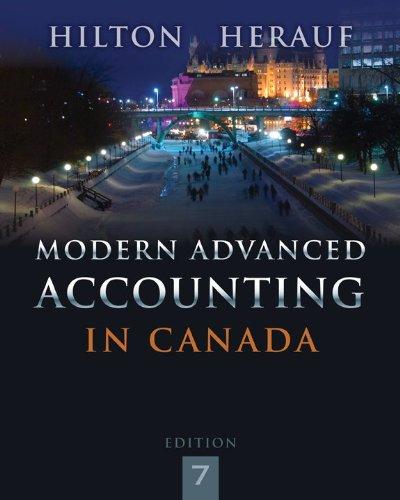When accounting for the acquisition of a non-wholly owned subsidiary, the parent can use entity theory or
Question:
(a) Which theory of consolidation is used to value non-controlling interest at the date of acquisition?
(b) What percentage of net income for the year is represented by non-controlling interest (sometimes referred to as minority interest)?
(c) What portion of the additions to other intangible assets during the year came from business combinations, and what portion came from direct purchases?
(d) What was the goodwill impairment loss for the year, or what were total impairment losses? Describe the two main factors contributing to the goodwill impairment.
(e) Assume that performance bonuses for the company's top executives are based, in part, on net income. How will the goodwill impairment loss for the year affect the bonuses for the executives in the current year? in future years?
(f) Explain why different discount rates are used for different geographical areas, and explain how a change in discount rate can negatively affect the value of goodwill.
(g) Assume that the company used the other acceptable theory of consolidation for valuing non-controlling interest accounting. How would this change in theory affect the return on total shareholders' equity for the first year after the date of acquisition?
Goodwill
Goodwill is an important concept and terminology in accounting which means good reputation. The word goodwill is used at various places in accounting but it is recognized only at the time of a business combination. There are generally two types of... Intangible Assets
An intangible asset is a resource controlled by an entity without physical substance. Unlike other assets, an intangible asset has no physical existence and you cannot touch it.Types of Intangible Assets and ExamplesSome examples are patented... Financial Statements
Financial statements are the standardized formats to present the financial information related to a business or an organization for its users. Financial statements contain the historical information as well as current period’s financial... Corporation
A Corporation is a legal form of business that is separate from its owner. In other words, a corporation is a business or organization formed by a group of people, and its right and liabilities separate from those of the individuals involved. It may... Discount Rate
Depending upon the context, the discount rate has two different definitions and usages. First, the discount rate refers to the interest rate charged to the commercial banks and other financial institutions for the loans they take from the Federal...
Fantastic news! We've Found the answer you've been seeking!
Step by Step Answer:
Related Book For 

Modern Advanced Accounting In Canada
ISBN: 9781259066481
7th Edition
Authors: Hilton Murray, Herauf Darrell
Question Posted:





